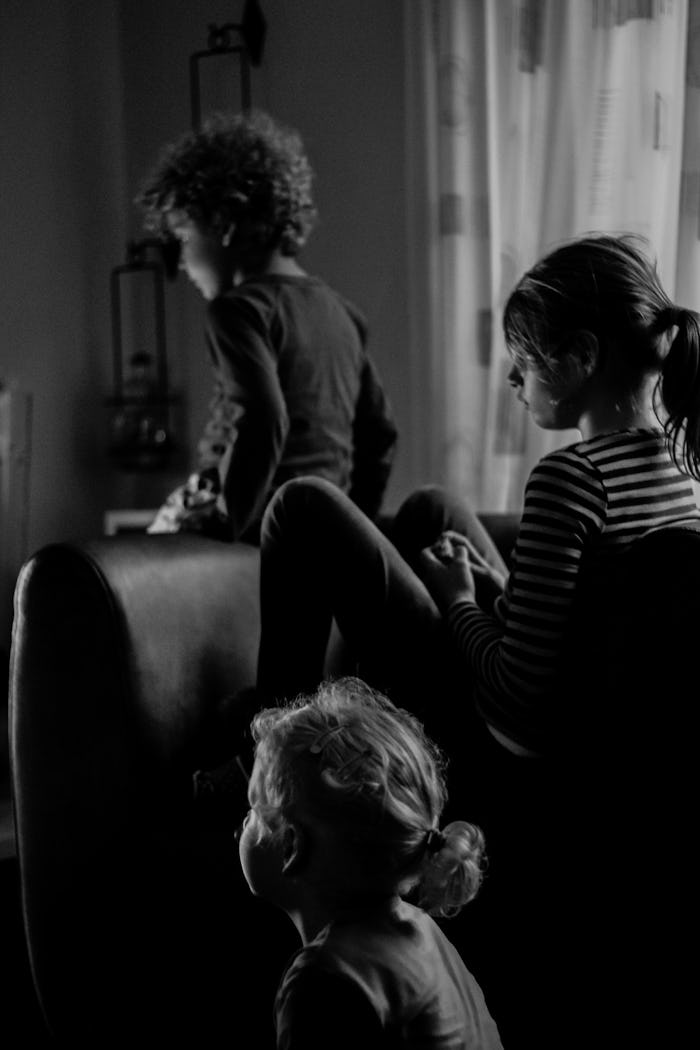Life
How Do Your Relationship Issues Affect Your Kids? 7 Struggles Your Children May Face
No matter how well they try to hide it, children can always sense when their parents are angry with one another. You may think that your bickering doesn't leave an impression, but researchers have been studying how your relationship issues affect your kids, and have discovered quite a few ways that children are impacted when they grow up in a high-conflict home. Consequences from witnessing parental relationship struggles can negatively affect the child throughout his or her entire life.
The way you and your partner behave toward one another is a reflection of how strong your relationship is and, in turn, how safe your children feel. A child who feels unsafe can develop a myriad of social, medical, and behavioral conditions. Although no relationship is conflict-free, it is important to model healthy behaviors in front of your children such as forgiveness, understanding, patience, and open-mindedness so that they will learn that disagreements can and should be worked out. By witnessing this kind of resolution, you will help your child feel more confident and secure.
Do you and your partner argue in front of your children? And over more than whose turn it is to take out the trash. The following are ways that those arguments can negatively affect your children.
1They May Have More Physical Health Problems
Could fighting cause the flu? Maybe. Developmental Science reported that children who grew up in homes with high conflict had more health problems such as vascular and immune disease.
2They Could Develop Emotional Problems
Children often feel they must take care of the emotional needs of parents and this pressure can leave a child feeling depressed and stressed according to clinical psychologist, Lisa Firestone, Ph.D.in Psychology Today. It's important to keep your fights in check for your child's mental well being.
3They May Suffer From Sleep Trouble
Is your fighting keeping your child up at night? Maybe not. But WebMd reported that children in high-conflict homes battle with restless sleep and daytime sleepiness.
4The Could Have Low Self-Esteem
Terry Gaspard, a licensed clinical social worker, wrote on The Huffington Post that a high-conflict upbringing can cause children to have low self-esteem and feelings of unworthiness and rejection. When parents are caught up with their own relationship struggles, the often don't realize if their child is struggling with emotional issues and needs a little extra attention.
5They Can Develop Feelings Of Guilt
Gaspard also warned that many kids internalize their family problems and feel as though they are at fault. Kids Health For Nemours noted that children often feel that they are the cause of their parents' arguments, especially if the disagreement has anything at all to do with the children. Even bickering about whose turn it is to drive the kids to school can make a child feel guilty.
6They Can Feel Unsafe
Child and Family Therapist Kathy Eugster, wrote on her website that "chronic parental conflict creates a climate of tension, chaos, disruption and unpredictability in the family environment. This can leave children feeling anxious and helpless.
7They May Think They Have To Choose Sides
Eugster warned that when couples fight, their kids often worry that they will have to choose one parent over the other. It is important that parents not ask their children to take sides, adolescent psychologist Linda Nielsen told Woman's Day. Choosing sides can add to a child's feelings of anxiety and depression. Many parents make the mistake of confiding in their kids about the problems they are having with their partner, which can make the child feel as though they are being pit against their other parent.
